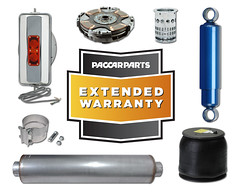Today, I am continuing the series, Money Problems: 30 Days to Perfect Finances. The series will consist of 30 things you can do in one setting to perfect your finances. It’s not a system to magically make your debt disappear. Instead, it is a path to understanding where you are, where you want to be, and–most importantly–how to bridge the gap.
I’m not running the series in 30 consecutive days. That’s not my schedule. Also, I think that talking about the same thing for 30 days straight will bore both of us. Instead, it will run roughly once a week. To make sure you don’t miss a post, please take a moment to subscribe, either by email or rss.
On this, Day 11, we’re going to talk about extended warranties.
You’ve been there. You walk into a big box electronics store to buy a $10 cable for your DVD player and the boy in blue at the register tries to pressure you into spending $4 on an extended warranty in case the cable dies due to too much adult video…or something.
The same nameless blue and yellow store is currently selling a laptop for $349 with a 2 year extended warranty for $89. The sales pitch usually goes something along the line of “These things have a tendency to break. You need a warranty to make it worth purchasing.” Thanks, jerk. You just sent me to a competitor since your sales pitch involves telling me you’re selling garbage.
Seriously, getting an extended warranty on electronics is almost always a bad deal. Yes, almost 30% of laptops fail within three years. Most of those fail in the 3rd year. What’s a 2 year warranty going to do for you then? New laptops generally come with a 1 year warranty from the factory. That leaves you volunteering for a 25% markup in exchange for protecting your device for a year that is not statistically likely to include a laptop failure.
A much better idea is to create a warranty/repair fund. When you buy something and have a warranty offered, turn it down and put that money in a special savings account. That money will get set aside to repair your stuff when it breaks. If you do that with everything you buy, you’ll soon have a fund that can pay for most repairs, without stressing your budget. I’ve got $25 going into my repair fund every month, so I’ll never have to worry about an extended warranty again.
It’s called a self-warranty.
But what about a car warranty you ask?
This is where I differ from most people. I’m a fan of extended warranties on cars, with 2 caveats.
1. Use it. If you car has started shaking, knocking, or almost anything else, bring it in. You have a warranty, so get your dang car fixed. When you’re getting close to the end of your warranty, make up an excuse and get that car into the dealer. “My car’s making an intermittent knocking sound. Can you fix it? While you’re at it, please do your 90,000 point inspection and fix whatever you find.” There’s no reason that you can’t get your car running like new when it kicks over the 70,000 mile mark.
2. Negotiate it. The charge you see is typically twice the dealer’s cost. Let them make some profit, since that’s what makes the world go round, but don’t let them take advantage of you. If they offer you a warranty for $2000, counter with $1200.
If you can get a decent price and are willing to make sure you use the auto warranty, get it.
How do you feel about extended warranties? Please leave a comment below and let me know.


I never buy extended warranty on any products. I’m careful with my electronics and most of them last for years. Our old laptop from 2005 is still going strong. Well, it’s getting a bit slow, but warranty won’t fix that.
never anyone could sell me an extended warranty. If anything goes wrong I can get it fixed by home based businesses in my area, from TV to computer
I bought my car when I was young and stupid. I paid for the extended warranty, had no idea what I was paying for and never used the warranty. It expired and I still haven’t had a problem with my car. I really regret that decision.